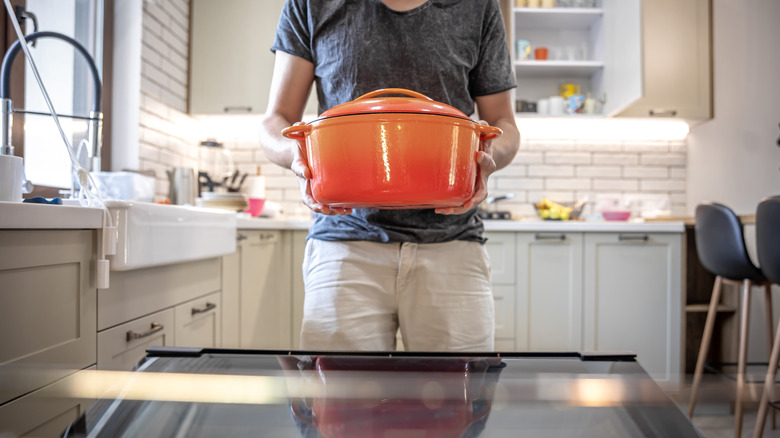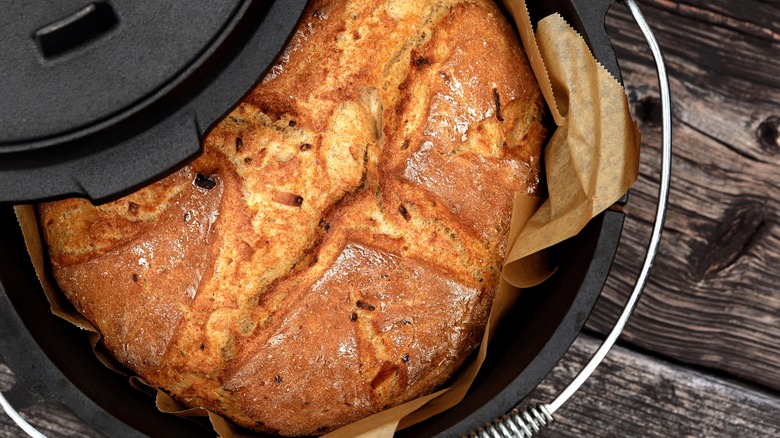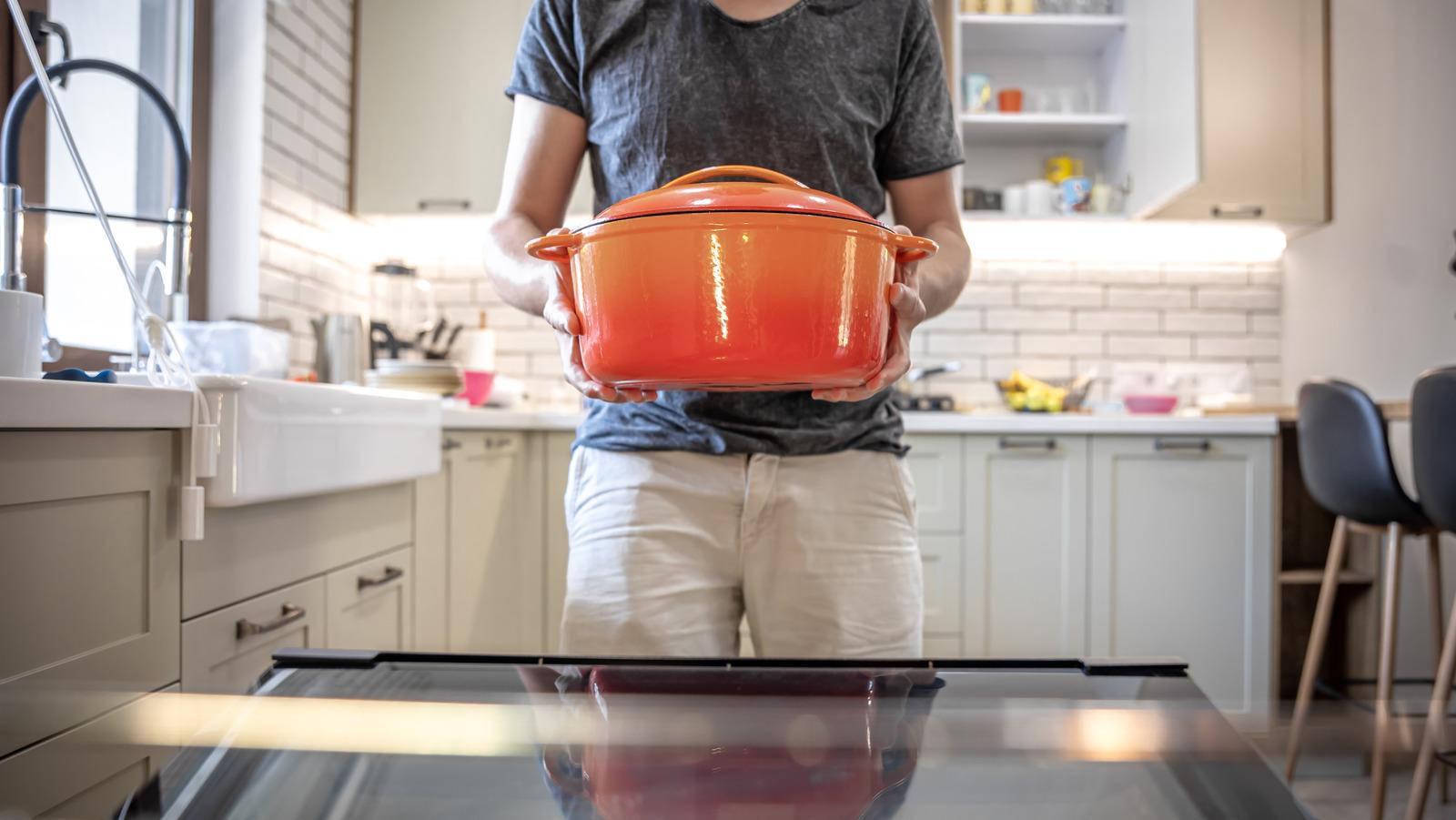
PV productions/Shutterstock
Among the many pots and pans in the kitchens of most home cooks, one likely stands out. The heavy, deep pot commonly known as a Dutch oven can be a workhorse for amateur and professional chefs alike. However, some may wonder whether these versatile vessels are safe to place directly in their ovens. Fortunately, with limited exceptions, the answer is an overwhelming yes.
The critical factor to consider when using a Dutch oven in the oven is the material it's made from. Modern Dutch ovens are typically crafted from cast iron or enamel-coated cast iron. Stainless steel options are also available, although they're less common due to their lower ability to retain heat and lighter-weight lid, which may not seal as effectively. In addition, ceramic Dutch ovens also exist. However, these are more fragile and often require extra care when both cooking and cleaning.
Regardless of which of these you select, you're generally good to use them as a cooking vessel in your oven, subject to some temperature restrictions. Cast iron and high-fired ceramic are safe to 500 degrees Fahrenheit, while enameled cast iron should be kept at 450 degrees or lower to protect the coating. Meanwhile, stainless steel versions should be kept to lower or medium temperatures.
Avoid oven use for these type of Dutch ovens

MakroBetz/Shutterstock
There's one potential issue that could prevent certain Dutch ovens from safe oven use. Although handles, knobs, and other parts of a Dutch oven are typically metal, alternative versions with plastic, wood, or other materials often aren't suitable for use in the oven at any temperature.
Subjecting your Dutch oven to high temperatures also means caring for it appropriately. One of the first things any home cook should do after getting a Dutch oven is learning the correct way to clean it. In the case of enameled cast iron, the vessel should be allowed to cool before hand-washing. This protects the coating from thermal shock that could crack or damage it. Regular cast-iron Dutch ovens should be allowed to cool, cleaned (with or without dish soap), and then seasoned with oil to protect the surface.
Whether you're baking homemade bread or experimenting with our Dutch oven recipes you'll want to make every week, the ability to use this important piece of kitchen equipment in the oven is a serious benefit. Now that you know this vital piece of knowledge, there's no limit to what kinds of delicious food you should make in your Dutch oven.



